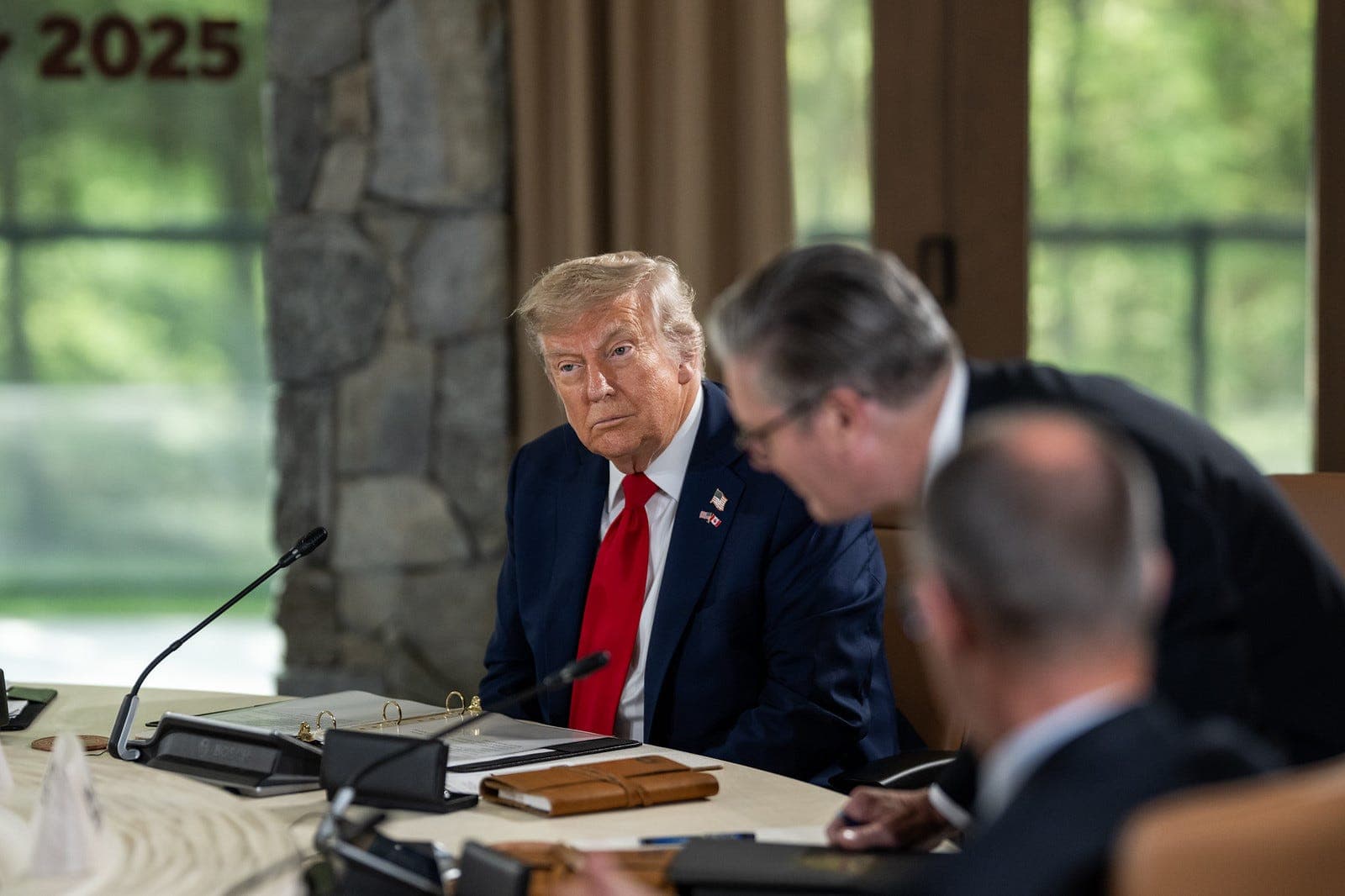We're loading the full news article for you. This includes the article content, images, author information, and related articles.
The decision shatters a decades-long global moratorium on nuclear testing, raising fears of a new arms race and directly challenging Africa's long-standing commitment to disarmament, including Kenya's obligations under continental treaties.

WASHINGTON D.C. – In a move that abruptly reverses decades of American nuclear policy, President Donald Trump on Thursday, October 30, 2025, ordered the immediate resumption of U.S. nuclear weapons testing after a 33-year moratorium. The directive, announced on the social media platform Truth Social, has sent shockwaves across the globe, sparking condemnation from arms control advocates and raising alarms over a potential new era of nuclear brinkmanship among world powers.
The announcement was made just minutes before President Trump held a high-stakes meeting with Chinese President Xi Jinping in Busan, South Korea. In his post, Trump stated he had instructed the Pentagon, which he referred to as the 'Department of War', to “start testing our Nuclear Weapons on an equal basis” with Russia and China. “Because of other countries' testing programs... That process will begin immediately,” Trump wrote.
The United States has not conducted a live nuclear weapon test explosion since September 23, 1992, when President George H.W. Bush initiated a voluntary moratorium. Since then, the nation has relied on advanced computer simulations and subcritical, non-explosive experiments to maintain its nuclear arsenal under the Stockpile Stewardship Program.
The order threatens to unravel the fragile international framework aimed at preventing nuclear proliferation. A key pillar of this framework is the Comprehensive Nuclear-Test-Ban Treaty (CTBT), adopted by the UN General Assembly in 1996. While the United States was one of the first signatories, it has never ratified the treaty, a fact that has long been a point of contention in disarmament circles. Russia ratified the CTBT in 2000 but announced it was withdrawing its ratification in 2023 to “mirror” the U.S. stance.
Arms control experts have warned that a resumption of U.S. testing could trigger a domino effect. Daryl Kimball, executive director of the Arms Control Association, described the move as technically and militarily unnecessary, warning it could “trigger a chain reaction of nuclear testing by U.S. adversaries, and blow apart the nuclear Nonproliferation Treaty.” Russian President Vladimir Putin has previously stated that Russia would resume testing if the United States did.
President Trump's rationale points to the modernization and expansion of Chinese and Russian nuclear capabilities. Recent reports indicate China has significantly increased its nuclear warhead stockpile, with estimates suggesting it could reach over 1,000 by 2030. Russia has also recently announced successful tests of new nuclear-powered weapons systems.
For Kenya and the wider African continent, the U.S. decision directly contravenes long-held principles and legal commitments to nuclear disarmament. The continent is a designated Nuclear-Weapon-Free Zone under the African Nuclear-Weapon-Free Zone Treaty, also known as the Treaty of Pelindaba, which entered into force in 2009. This treaty prohibits member states from researching, developing, manufacturing, stockpiling, acquiring, possessing, or testing nuclear explosive devices.
Furthermore, Protocol II of the Pelindaba Treaty specifically calls on the five nuclear-weapon states recognized by the Non-Proliferation Treaty (NPT)—including the United States—not to test or encourage the testing of any nuclear explosive device anywhere within the African zone. While the U.S. signed this protocol in 1996, it has yet to ratify it.
Kenya has a strong record of supporting nuclear disarmament. It ratified the Comprehensive Nuclear-Test-Ban Treaty on November 30, 2000, and plays a key role in global monitoring by hosting two International Monitoring System (IMS) stations that detect nuclear tests. In 2023, Kenyan officials reiterated that efforts to strengthen disarmament treaties are essential. President William Ruto, speaking at the UN General Assembly in September 2024, warned of a renewed nuclear arms race and the real possibility of “catastrophic nuclear warfare,” lamenting that the “vision of a world free from nuclear weapons... is dying incrementally.”
While the African Union and the Kenyan Ministry of Foreign Affairs have not yet issued a formal statement on President Trump's announcement, the continent's position is clear through the statements of the African Commission on Nuclear Energy (AFCONE), which consistently advocates for global disarmament. The U.S. move is likely to be viewed as a significant setback to these goals and a threat to global security, potentially forcing African nations to navigate a world where the norms against nuclear proliferation are dangerously eroding.
The White House has not provided further details on the timeline, location, or nature of the proposed tests. The logistical challenges are significant, with experts suggesting it could take the National Nuclear Security Administration at least 36 months to prepare for an underground test at its Nevada site.
Keep the conversation in one place—threads here stay linked to the story and in the forums.
Sign in to start a discussion
Start a conversation about this story and keep it linked here.
Other hot threads
E-sports and Gaming Community in Kenya
Active 9 months ago
The Role of Technology in Modern Agriculture (AgriTech)
Active 9 months ago
Popular Recreational Activities Across Counties
Active 9 months ago
Investing in Youth Sports Development Programs
Active 9 months ago